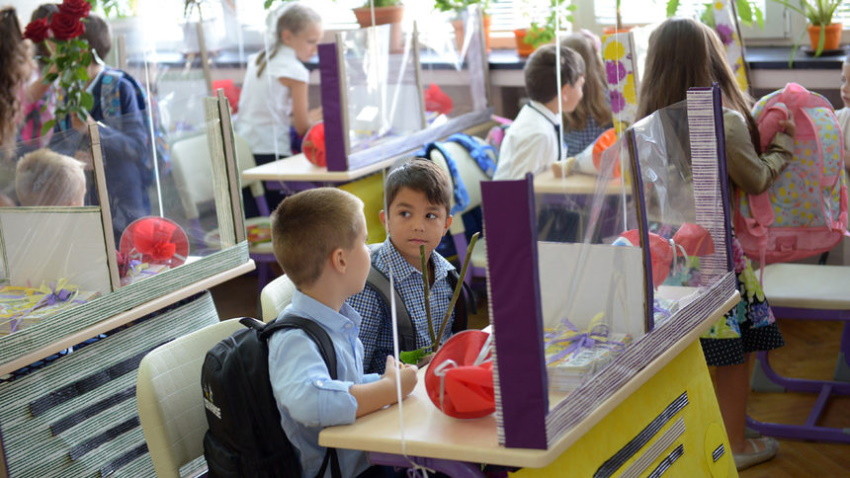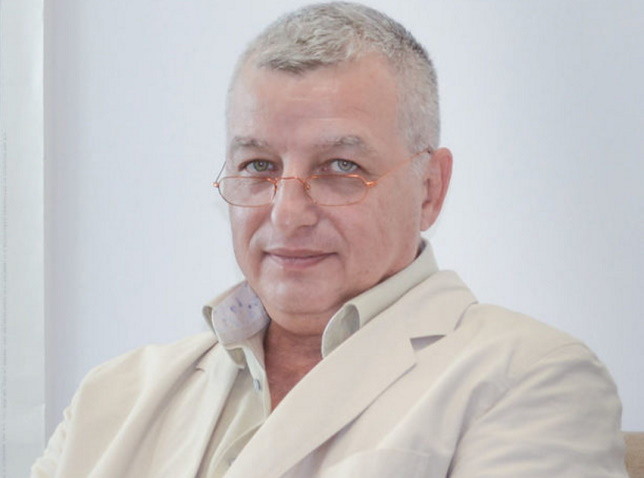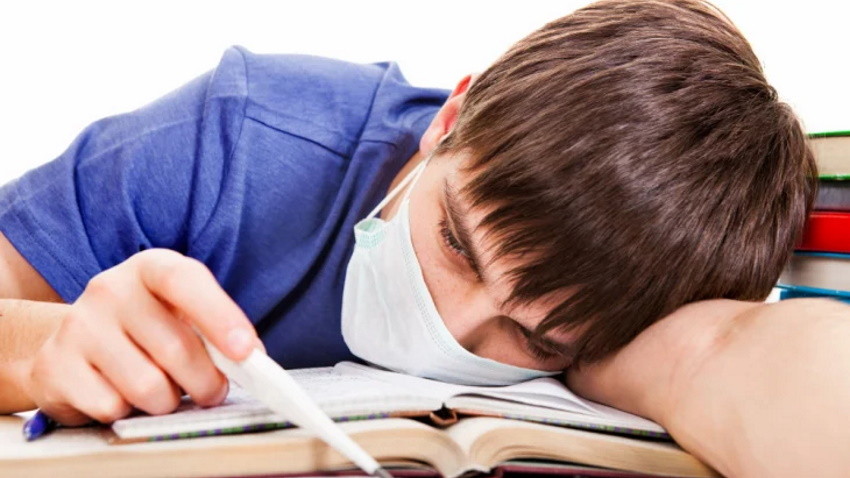Is it normal to communicate with your teachers online or through a Plexiglas barrier, to move in the school corridor only along a certain route marked with arrows, to wear a mask behind which you have difficulty breathing and you cannot express your emotions, to keep being told that you have to observe a "social distance" and finally, if you sneeze, be locked up in a special "isolation room" waiting for mom or dad to take you home? This is the new reality for students in Bulgaria and around the world, which has become part of the so-called "new normal".

But to what extent is "the normal" really normal and how would preventive measures against the spread of coronavirus infection affect the fragile children's psyche?
"Frankly, I don't know. We have never been in such a situation before," Ivan Igov, one of the most famous Bulgarian school psychologists, told Radio Bulgaria. He compares the Covid-19 pandemic to other major social upheavals. As with them, so in this case the consequences, according to him, are related to the so-called post-traumatic stress disorder: “It usually appears from a few weeks to a few months after the crisis. And in our case, it hasn't even passed yet! ” However, the situation should not be dramatized:
"Children have different reactions in different age groups”, says Ivan Igov. “The younger ones accept it as a game. In addition, the actual wearing of masks at school is for a relatively short period - maybe about 20 minutes a day. In practice, children are without masks in class. In my opinion, the situation is actually more stressful for teachers than for students.

As for older students, post-traumatic stress usually leads to aggression. I expect it to intensify with them. Let's not forget that in Bulgaria school bullying is already widespread enough. The problem is that when we talk about aggression, we do not mean only its external manifestation. It can be turned inwards and towards oneself. Children can start to close within themselves, experience depressive syndromes, they can even go to some extremes”.
There is another factor which might increase stress amidst the Covid-19 pandemic, says Ivan Igov. Bulgarian schools in big cities are overcrowded. Some of these buildings have been built for 300 to 500 children, but currently in some of them between 1,300 to 1,500 students are trained in different shifts. And all attempts to reschedule classes there, with the idea of not having a large number of children, lead to additional tension. In practice, in these schools there are no conditions for the so-called "social distancing".
Is it possible that the so-called “new normal” might put the younger generation in a distorted social model, reaching extreme sterility and isolation?

“I do not think that this will have long-term consequences for the children,” Ivan Igov firmly says. “In social psychology, post-traumatic conditions are observed, for example, after wartime. But wars inflict much greater trauma over a longer period of time. The truth is that generations manage to adapt to social upheavals, especially children. My predictions are that by spring we will return to a normalcy close to the one we lived in until recently. And children will learn to live with a little better hygiene and sensitivity”.
English Rossitsa Petcova
Photos: BGNES, dnevnik.bg and private library
The Bulgarian minority in Romania marked a significant event with the official opening of the Bulgarian Inn in the village of Izvoarele (Hanul Bilgarilor), Teleorman County (Southern Romania)- a locality with Bulgarian roots dating back over 200 years...
The 14th edition of DiVino.Taste, Bulgaria’s leading forum for wines and winemakers, will take place from 28 to 30 November at the Inter Expo Centre in Sofia. Over 80 producers from all wine regions will participate, offering tastings of around 600 of the..
Minutes before the second and final reading, at the parliamentary budget and finance committee, of the state budget for 2026, the leader of the biggest party represented in parliament GERB Boyko Borissov halted the procedure and sent the draft bill..

+359 2 9336 661
